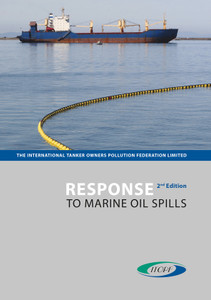
This section of the Manual on Oil Pollution provides the reader, in particular on-scene commanders, lead agencies and others involved in the management of oil pollution response, with an appreciation of the various interests involved in an oil pollution emergency and its aftermath, as well as a general review of the international legal regimes governing limitation of liability and compensation for oil pollution damage.
The Marine Environment Protection Committee, at its thirty-third session, agreed that a new section V of the IMO Manual on Oil Pollution, dealing with administrative aspects and, in particular, with the roles and functions of entities that could be involved in an oil pollution emergency and its aftermath, should be developed. The present text is a revision of the first edition of the Manual, published in 1998, taking into account changes and new information on the topic since the original version.
This section of the Manual on Oil Pollution is intended to provide the reader, in particular on-scene commanders, lead agencies and others involved in the management of oil pollution response, with an appreciation of the various interests involved in an oil pollution emergency and its aftermath, as well as a general review of the international legal regimes governing limitation of liability and compensation for oil pollution damage. This section is not intended to provide an authorized or definitive commentary on the legal relationships between the various entities involved in an oil pollution emergency or an interpretation of relevant international conventions.
The reference section includes sources of more comprehensive information on these subjects, and the reader is encouraged to make use of them if more detailed information is required.
Part I – Roles and functions of entities which could be involved in an oil pollution emergency and its aftermath
Chapter 1 – The shipowner
Chapter 2 – The ship operator
Chapter 3 – The master
Chapter 4 – The cargo owner
Chapter 5 – The flag State
Chapter 6 – The coastal State
Chapter 7 – The salvors
Chapter 8 – The liability insurer
Part II – Compensation for oil pollution damage
Chapter 9 – Outline
Chapter 10 – The International Compensation Regime
Chapter 11 – Recovery of compensation
Appendices
Appendix 1 – Chapter IX of the Annex to the 1974 SOLAS Convention, as amended
Appendix 2 – Resolution MEPC.138(53)
Appendix 3 – Lloyd’s Standard Form of Salvage Agreement LOF 2000
Appendix 4 – International Group of P&I Clubs
Appendix 5 – Extract from the 1992 Fund’s Claims Manual – April 2005 Edition
Appendix 6 – Resolution A.983(24)
Appendix 7 – SCOPIC Clause
A??s a specialized agency of the United Nations, IMO is the global standard-setting authority for the safety, security and environmental performance of international shipping. Its main role is to create a regulatory framework for the shipping industry that is fair and effective, universally adopted and universally implemented.
In other words, its role is to create a level playing-field so that ship operators cannot address their financial issues by simply cutting corners and compromising on safety, security and environmental performance. This approach also encourages innovation and efficiency.
Shipping is a truly international industry, and it can only operate effectively if the regulations and standards are themselves agreed, adopted and implemented on an international basis. And IMO is the forum at which this process takes place.
- Number of Pages:
- 100
- ISBN:
- 9789280115000
- Published Date:
- January 2009
- Book Height:
- 250 mm
- Book Width:
- 210 mm
- Author:
IMO
- Preview:
- Yes
- Binding Format:
- Paperback
- Publication Date:
- January 2009



